Electric heaters are a key component of many devices and processes where water heating is required. Depending on the specifics of the application, different types of water heating heaters are used, such as tubular, cartridge or galvanic. Each of these types has its own unique properties and uses, which determine their choice in certain conditions.
Types of electric water heaters
Tubular Heaters
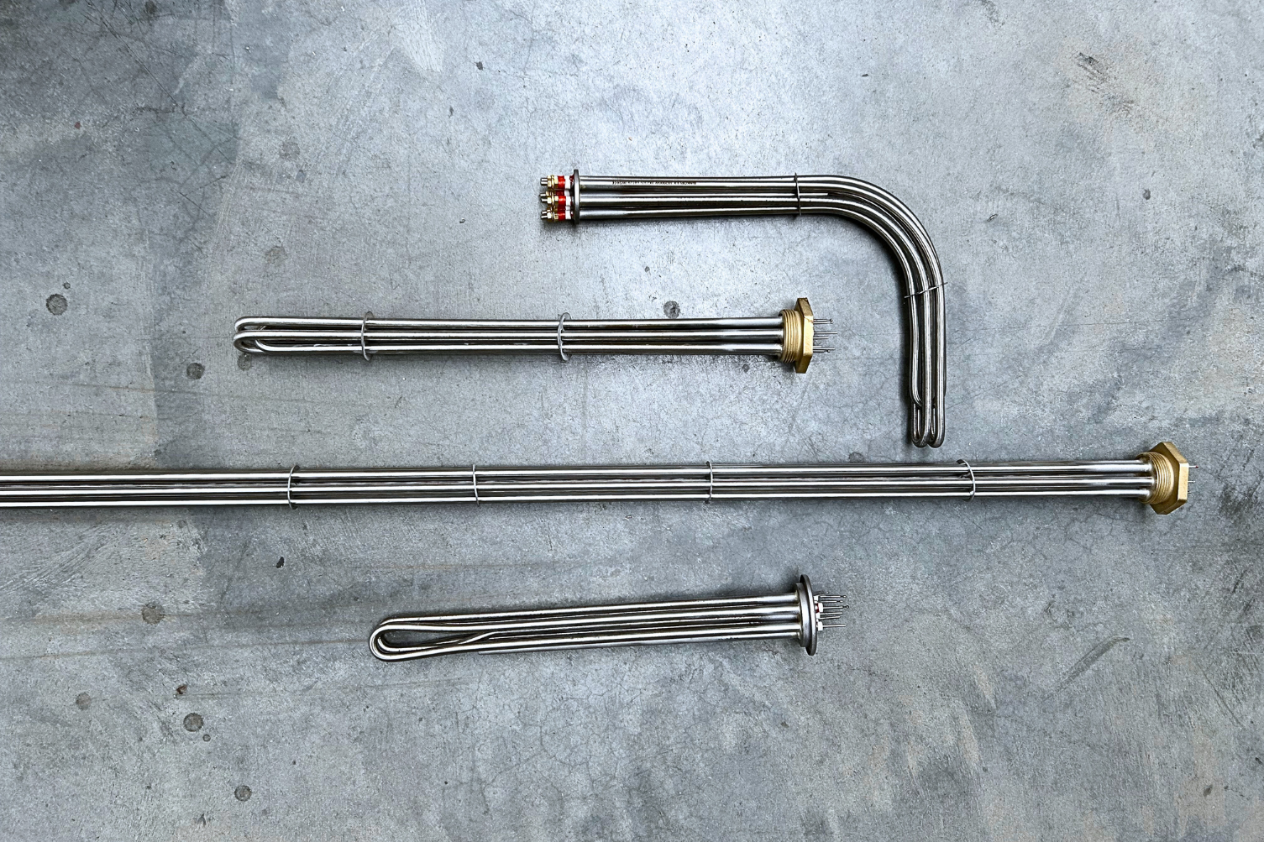
Tubular heaters are the most widespread type of heaters used in both household and industrial appliances. Their popularity is due to the simplicity of design and efficiency of operation. They are made of a metal pipe, inside which a heating element is placed, and at both ends there are current outlets. An important aspect of the installation of tubular heaters is the need to ensure that the electrical part remains in the dry zone, out of reach of water, therefore the heater must be bent, for example, in the letter “U”, so that the leads are only on one side. Then a flange or head is welded, which allows the heater to be tightly screwed into the tank.
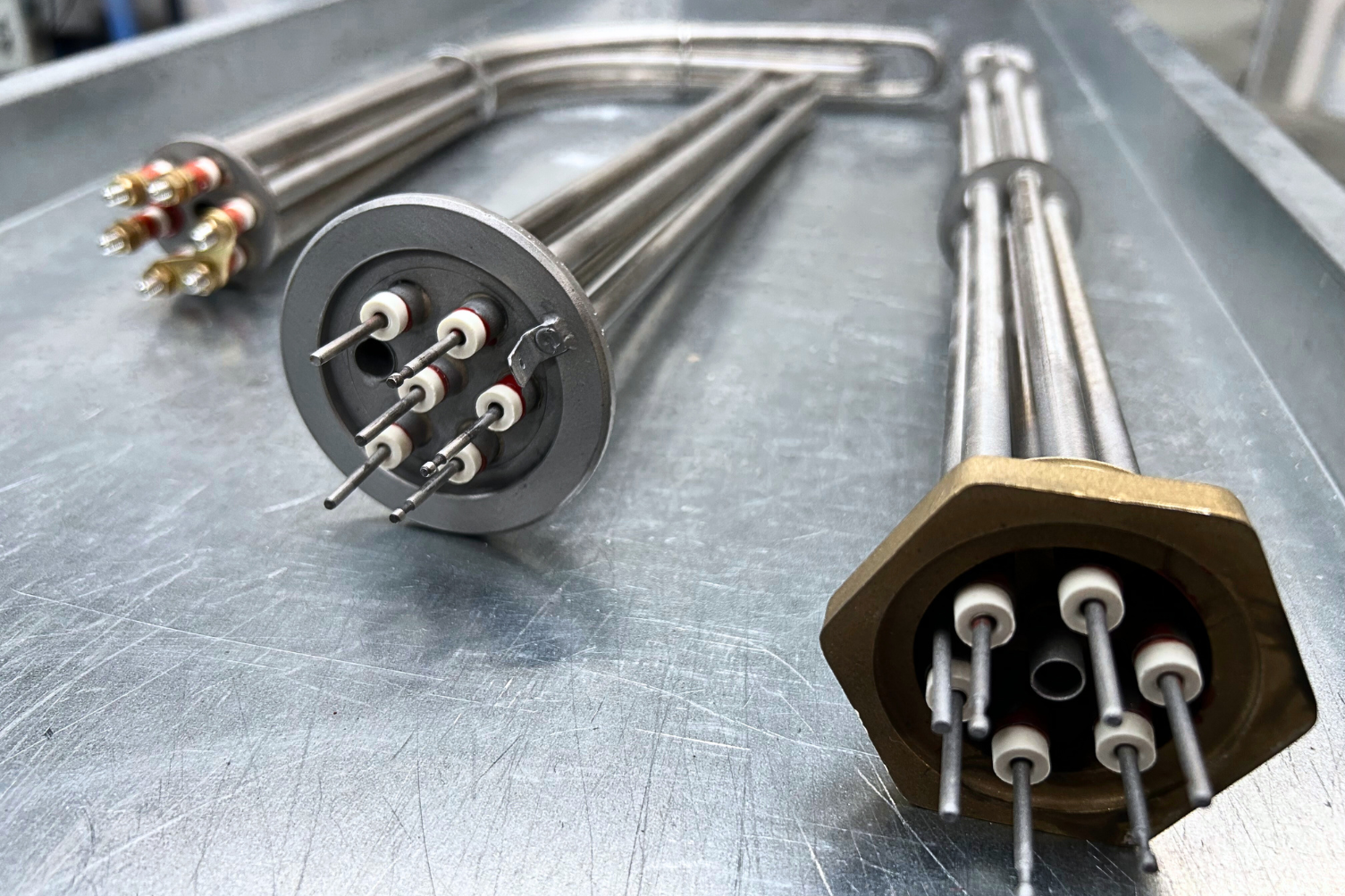
Thanks to the possibility of mass production, tubular heaters are relatively cheap to manufacture, and most importantly, a really large element can be made, making them an economical solution for heating large volumes of water.
Tubular heaters are used in large water tanks, washing machines or ultrasonic cleaners.
Patron and Flat Oval Heaters
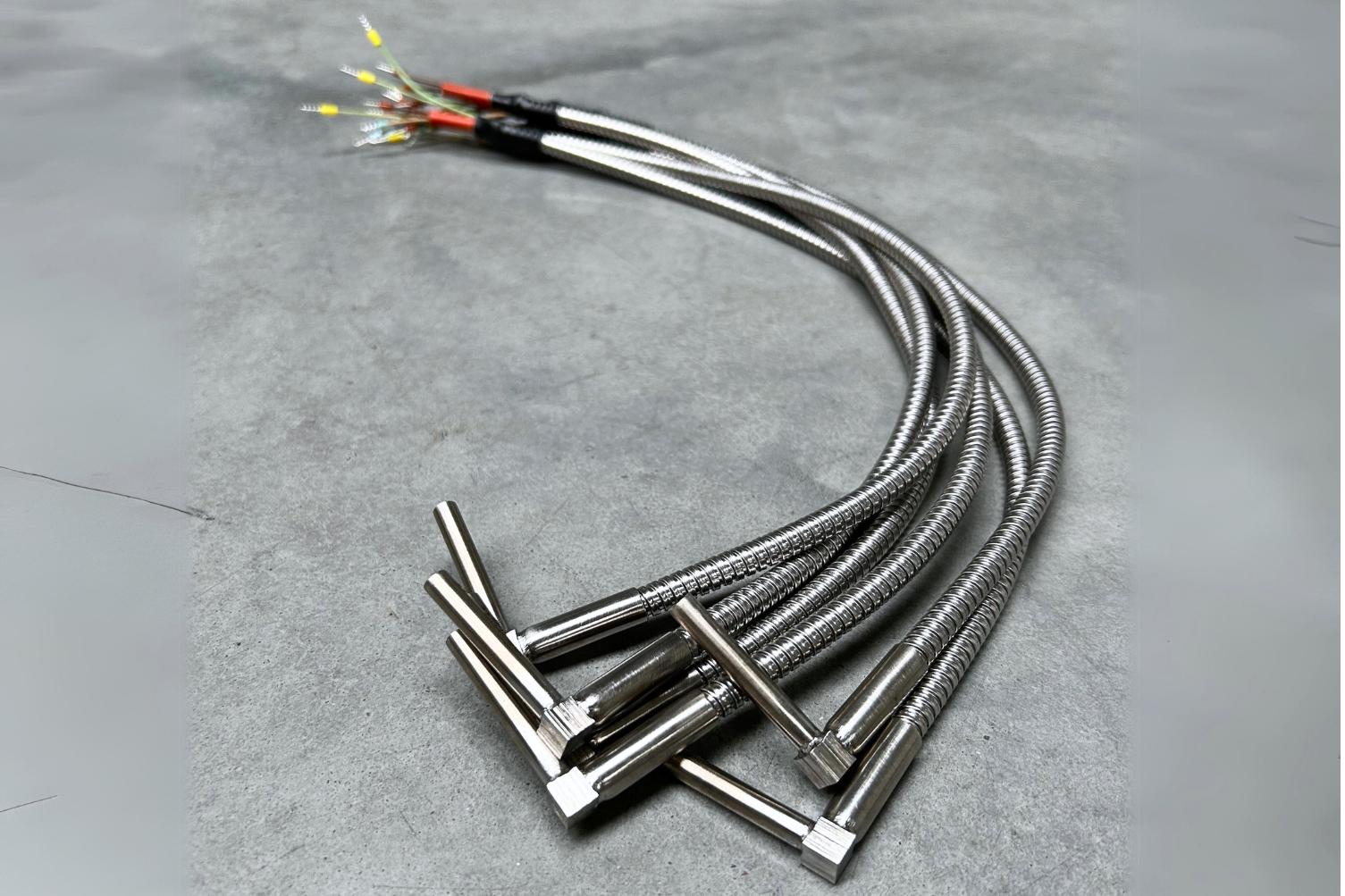
Cartridge heaters and their variant — flat-oval heaters — are characterized by a more complex construction. Unlike tubular heaters, they have current outlets on one side, and the heating spiral is placed inside the housing in a coiled form back and forth. This design makes them more labor-intensive in production, which affects their higher price.
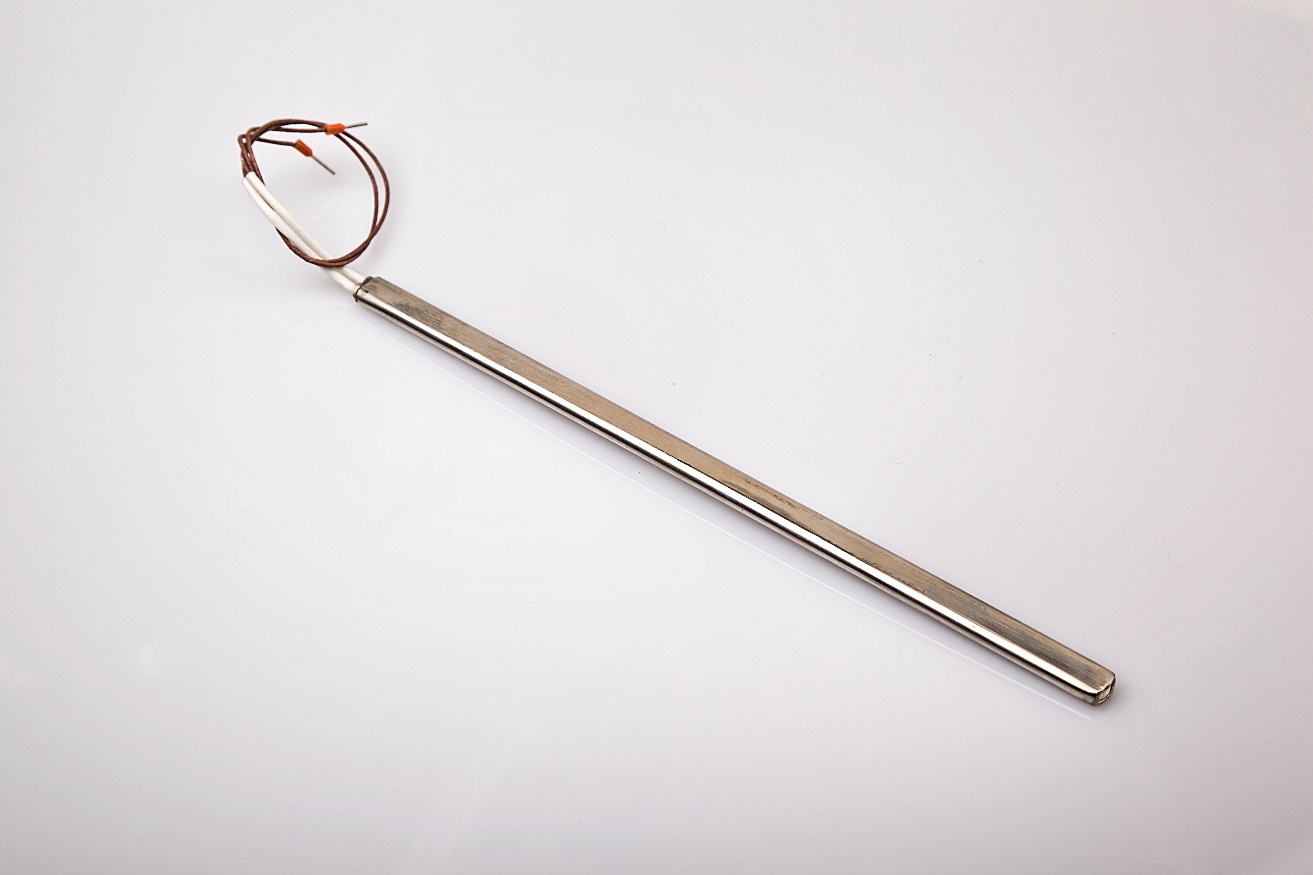
Nevertheless, cartridge heaters have some advantages over tubular heaters, especially for applications requiring compact solutions. They can be miniature, which allows them to be used in small tanks, where the tubular heater would take up too much space. Thanks to this, cartridge heaters are great not only for heating water, but also oils or acids in small tanks.
Galvanic Heaters
Galvanic heaters are a specialized solution, mainly intended for industrial electroplating processes, i.e. coating processes, where it is required to heat liquids such as acids or water in open tanks. These types of heaters are mounted vertically and can be used in process washers, in which metal elements are subjected to galvanizing processes.
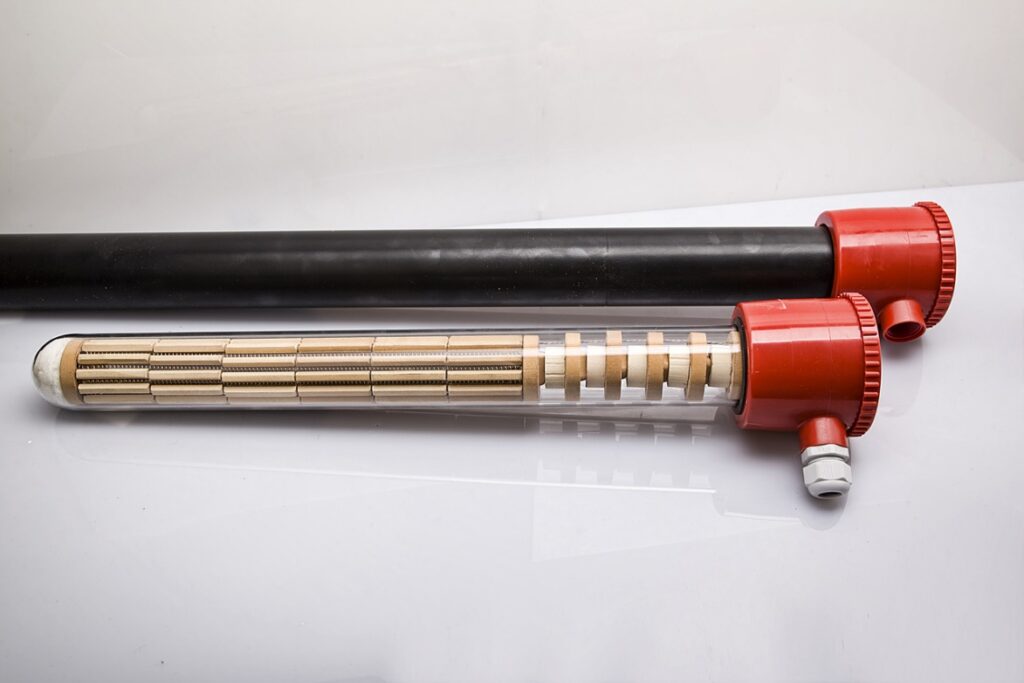
Galvanic heaters consist of a cover, a ceramic heating element and a polypropylene head covering the current connections. Their design is resistant to aggressive chemical environments, making them ideal for industrial applications where standard heaters would not be able to withstand harsh operating conditions.
Water heating — key aspects
It is worth remembering that it is not the heater itself that determines the heating, but also how a given medium absorbs energy from the heater. Water is one of the best heat receivers, which means that heaters adapted to it can transmit a lot of power. Water, thanks to its high heat capacity, absorbs energy quickly and efficiently, which makes heaters whether tubular or flat-oval simply fulfill their task at 100%.
Despite the great efficiency of the heaters and the reception of heat by the water, during the operation of the heaters in the water there is a problem of stone deposition, which can shorten their service life. The stone acts as an insulator, reducing the efficiency of heat transfer from the heater to the water. To prevent this from happening, it is worth using anodes or water softeners, which is especially relevant in industrial applications.
Application of heaters in industry
In industry, high power heaters are an indispensable element, especially for large tanks such as those used in the food industry. Industrial heaters are often made of materials certified for contact with food, which is necessary, for example, when heating the water used to make cakes.
In such applications, heaters must not only provide adequate power, but also be adapted to specific hygiene requirements. In large industrial installations, sets of heaters are often used, which together form a high-power heating unit capable of effectively heating huge volumes of water.
summary
Tubular, cartridge and galvanic heaters are key solutions for heating water and other liquids, both in domestic and industrial applications. The choice of the right type of heater depends on the specifics of the application, the required power and the environment in which they will work. Each of these types has its own unique properties, which determine their efficiency and durability under different operating conditions.


